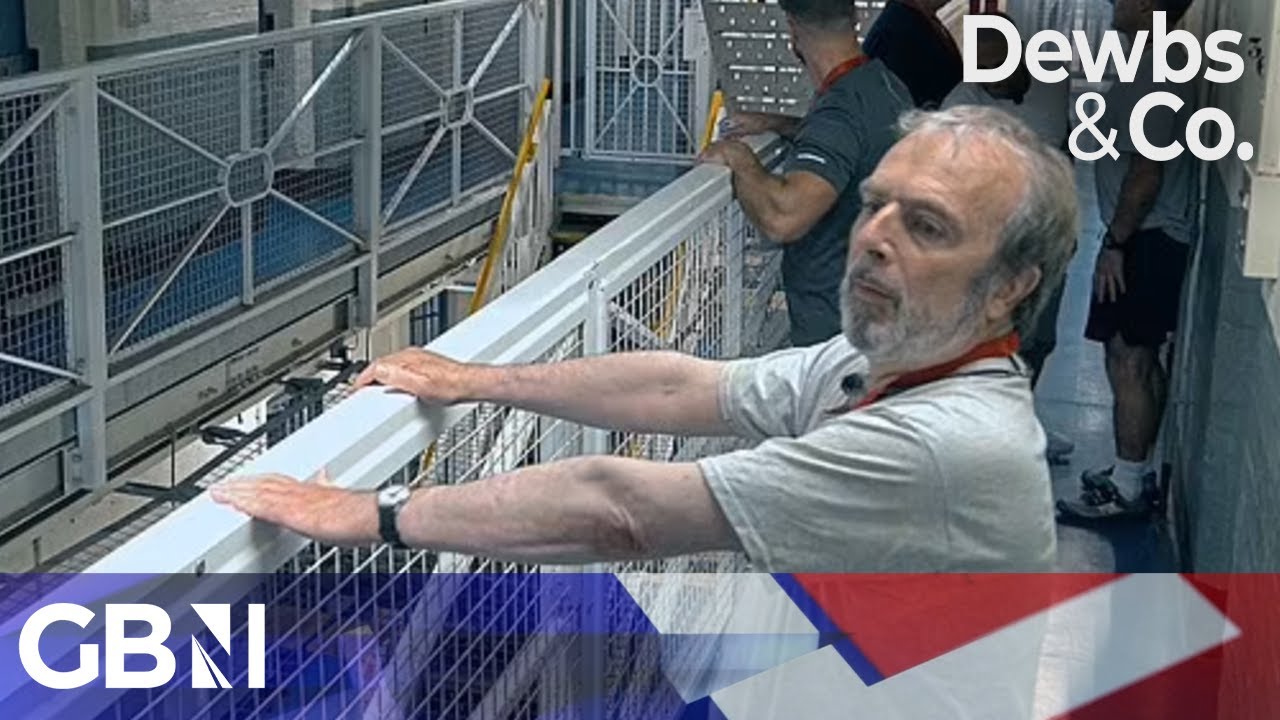Are Prisons In The Uk Too Soft And Cushy For Inmates? | Dewbs & Co
Unleash Your Creative Genius with MuseMind: Your AI-Powered Content Creation Copilot. Try now! 🚀
Unveiling the Unexpected
Life is a whirlwind of unexpected encounters and sights. I mean, who would have thought that a discussion about Nigel Farage's escapade in the jungle or Peter Hitchins in an unfortunate location would lead us into the labyrinth of thoughts about prisons? It's a peculiar twist, isn't it? But bear with me, this tangent leads to a fascinating exploration.
The Paradox of Punishment
Prisons - these enigmatic domains where society's darker shades are temporarily sequestered. The mere mention of prisons conjures up a cinematic reel of cells, bars, and punitive measures. But wait, pause for a moment. What's the purpose of a prison? Is it merely a stage for retribution or a ground for reformation?
In the uproar of punitive actions, we seem to have veered off the course of reason. Yes, punishment for transgressions is imperative, but should it stoop to the level of humiliation and soul destruction? Can we not draw a line between justice and dehumanization?
Beyond Brick and Mortar
Let's break the stereotype. Picture a prison that aims not just to confine but to sculpt better versions of individuals. A place where, amidst the bleak walls, there's a crèche rated outstanding by Ofsted. An oxymoronic paradise where children play freely, a sight that challenges the conventional perception of confinement.
The rhetoric of 'making better people' echoes through the corridors. But is that truly the primary role of a prison? Can incarceration truly forge better individuals, or is it a mere oversight of the root causes?
Redefining Rehabilitation
The dichotomy of opinions unfurls further. The aim to 'change lives for the better' graces the banners of these institutions. It beckons reflection. Do prisons solely bear the responsibility of shaping individuals into their better selves? Or is there a collective societal responsibility to address the roots that lead to these paths of incarceration?
Perhaps, within these walls, lies not just an opportunity for reflection but also a stark reminder of our societal failings. It's not merely about prisons, but about the systems and the environments that nurture or neglect certain trajectories.
The Canvas of Human Interaction
What's truly intriguing is the human interplay within these confined spaces. Peter's rendezvous with a young man and their exchange of personal narratives amidst the confinement, it's a testament to the unexpected connections that sprout in the most unforeseen corners of life. Mentorship, empathy, and shared stories flourish even in the harshest of environments, challenging our preconceived notions.
In conclusion, the narrative of prisons transcends the stereotypical portrayal of a punitive institution. It's a tapestry of paradoxes, a realm where the dichotomy of punishment and rehabilitation collide. Yet, amidst the chaos, there exists a glimmer of hope, a potential for transformation beyond mere incarceration.
So, as we delve into these realms of incarceration, let's not just scrutinize the bricks and bars but ponder upon the societal fabric that threads the stories within these walls.

Related Recaps
- Magnus Carlsen takes on 3000+ rated on chess.com GM Tsydypov | Commentary by Sagar
- Misfits x DAZN X Series 006: JMX vs. Le'Veon Bell Press Conference Livestream
- Tilly Valentine - Brick by Brick (official audio)
- 【LUIGI'S MANSION 3】 WUWWWIIIGGGGIIII TIIIIIIMEEEEE 【NIJISANJI EN | Elira Pendora】
- Wo Long Fallen Dynasty | OPTIMIZATION GUIDE | Every Setting Benchmarked | BEST SETTINGS